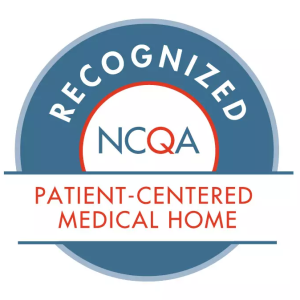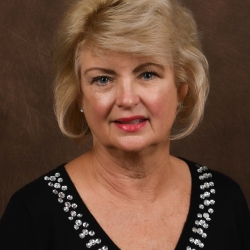What is Patient-Centered Medical Home?
Our mission at MVHS to provide Integrity, Compassion, Accountability, Respect, and Excellence to our patients and PCMH helps us work toward completing this mission. Patient-Centered Medical Home is an effective process that relates to our values at MVHS in providing excellent quality of care to our patients.
Many people fondly remember the ‘family doctor,’ the physician who cared for each generation of your family, and made house calls and follow up phone calls. The doctor became a part of your family and supported both your physical and emotional health.
While the idea of a ‘family doctor’ has changed over time, the concept of caring for the patient in all areas of their healthcare journey is alive and well with the providers at our MVHS Medical Group Primary Care offices.
The National Committee for Quality Assurance (NCQA) has designated the MVHS medical offices as a Patient-Centered Medical Home, recognizing their use of evidence-based, patient-centered processes that focus on highly coordinated care and long-term provider/patient relationships.
What does it mean to be a PCMH Recognized provider?
As a primary care provider, PCMH is a key foundation in delivering quality patient care with development of provider and patient relationships. Allowing the patient to be the core of care will improve not only how effective the treatment plan is, but improve the outcome. Another key feature of PCMH as a primary care provider is the improvement of accessibility for the services offered. After hours, care decreases the need for patients to seek medical attention in an outside organization such as an urgent care setting. This will improve accessibility to patient medical records for the afterhours clinician to ensure the treatment plan is appropriate for the patient. Overall, improving the coordination of patient care improves provider and patient satisfaction, is cost effective and a commitment to provide effective quality patient care.
Patient-Centered Medical Home is a model that was developed to improve the delivery of high quality, patient-centered health care. With the growing population and an increase in co-morbidities brings increased challenges for the primary care provider to decrease complications and hospitalizations. In the past, medical care was between a physician and the patient. As medicine has evolved, a team-based approach is required to produce quality, effective patient care. The most important team members are always the patient and their family. Developing working relationships with patients, is key to ensure the patient agrees with the treatment plan. This will directly improve patient outcomes. Engaging with the patient in a holistic manner, that not only aims at their physical health, but their mental, social and financial means is an important aspect in providing effective patient care. Another key feature is incorporating evidence-based care into practice to prevent adverse treatment plan outcomes. Evidence based practice, is key in cost-effective care to improve quality outcomes of chronic medical health conditions.
– Jennifer D’Onofrio, NP,
Nurse Practitioner Education Program Director
Recognition Requirements
In order to be recognized as a NCQA Patient-Centered Medical Home we must demonstrate and provide evidence that MVHS is compliance with the standards and guidelines on an annual basis. We continuously collect data and monitor our practice to maintain a highest standard of care.
In April of 2013 New York State reported to legislature that PCMH Practices rate higher in the majority of quality performance than Non PCMH practices.
The standards are aligned with the joint principles of the Patient-Centered Medical Home established with the American College of Physicians, the American Academy of Family Physicians, the American Academy of Pediatrics and the American Osteopathic Association.
Our MVHS Medical Group Primary Care offices met key program concepts in the following areas:
- Team-Based Care & Practice Organization
- Providing a helpful structure for leadership and organize team based care to each individual practice. This creates a Care Team’s that partner with the patients, families and caregivers.
- Knowing and Managing Your Patients:
- Making sure that the practice continues to collect data, reconcile medication, and provide evidence-based clinical decision support and other activities.
- Patient-Centered Access and Continuity:
- Ensure that we are able to provide patient to convenient access to clinical advice this provides great continuity of care.
- Care Management and Support:
- Identify patient specific needs to effectively plan, manage and coordinate patient care in partnership with the patient, families or caregivers. Emphasized on the support of our highest risk patients to more closely managed care.
- Care Coordination and Care Transitions:
- Effectively coordinating patient care with specialty care clinicians. Well managing patient’s referral to assist patient in minimizing cost, confusion and inappropriate care.
- Performance Measurement and Quality Improvement:
- Setting goals and performance measure to develop activities to improve practice and providers’ performance.




